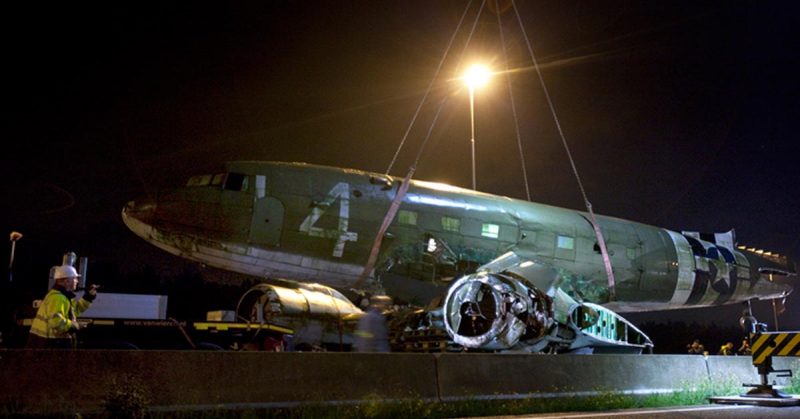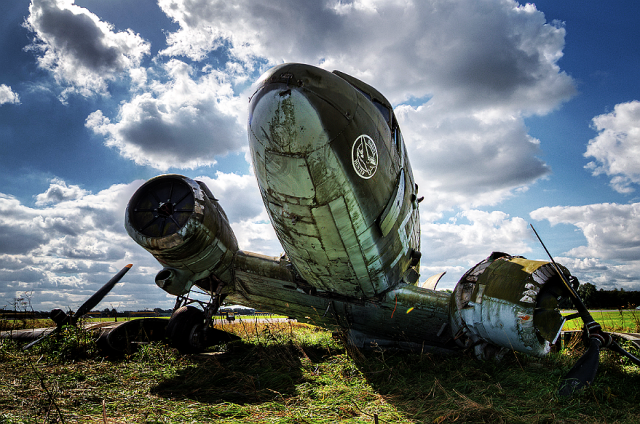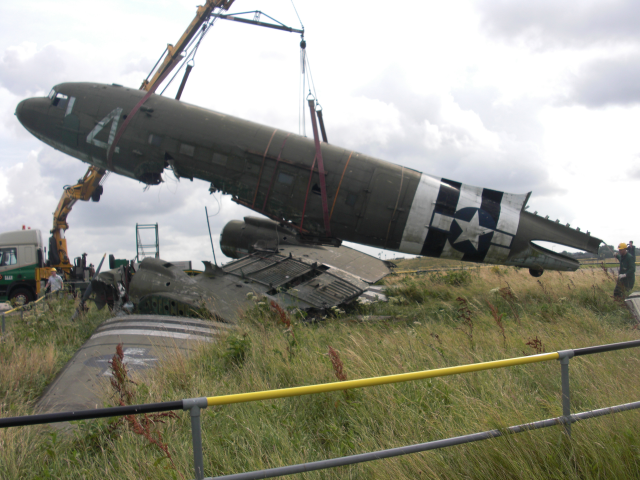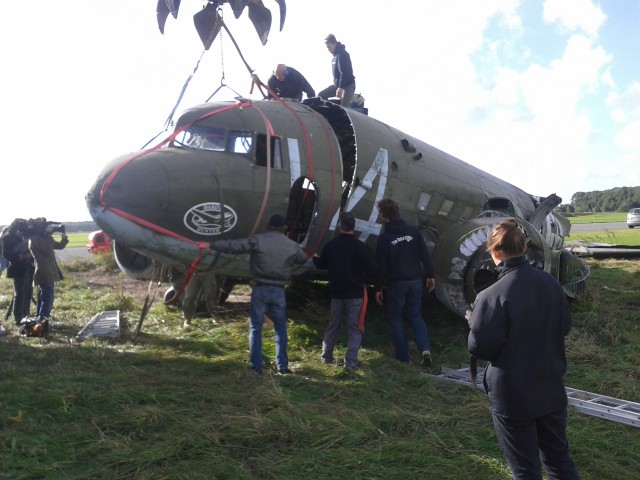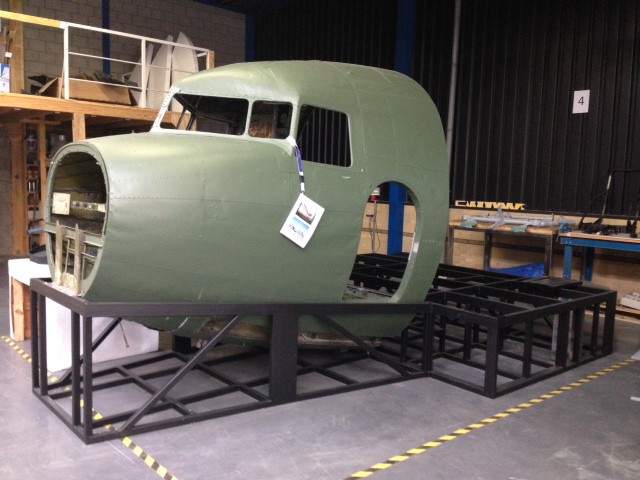Check it Out! War History Online proudly presents this guest blog from accomplished author and blogger Hans Wiesman. You can read more by Hans and find out about his book on his website.
In my previous Blogs Ghosts of the Gooney Bird, I showed pictures of crashed, lost and derelict Douglas C-47s/ DC-3s/ Dakotas.
Most of them are lost forever, doomed to stay where they are and slowly deteriorating. In the (semi) arctic conditions of the North that can take quite some time and the aluminum skin of the aircraft can remain pretty well conserved.
When warmer or salty conditions prevail, the process of rotting away can go much faster. In rare cases, the crashing of the aircraft is not caused by technical failure or pilot error, but by sheer bad luck or “driver error”. The derelict Douglas C-47 that you see in the main feature photo is such rare case.
This particular aircraft has a long and well-documented career, built in 1944 in Oklahoma, it was delivered to the USAAF on 24 April 1945 and soon after the war it ended up with the French Air Force and later Air France.
The plane became a cargo transport, flying over Europe and North Africa and at the end of its active life, the aircraft became a Museum Display in Belgium. First as Gate Guard in the Ardennes Victory Museum in Arlon, Belgium, later as a show piece of the “Wings of Liberation” Museum in Best, Holland.
One day in Sept 2010, a novel Musical Production started up in a hangar of former Naval Air Station Valkenburg, 10 miles out from The Hague, Holland in which a starring role was foreseen for this aircraft.
The Dakota would be playing in a marvellous act, in which the Hangar doors would open, and the aircraft would come in view right in front. The 1100 spectators sitting on a rotating auditorium inside that Hangar would watch in awe the ‘live’ act of a real C-47 rolling into their show from the outdoor platform.
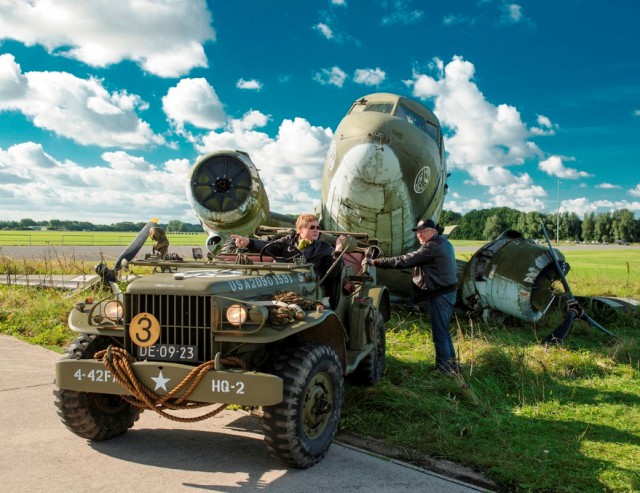
The transport from Brabant to Valkenburg was well prepared and would take place by night with police escorts, in order to make room for the 6+ meter wide road transport. The fuselage and central wing section were coupled so the two engine nacelles were hanging over the truck’s low loader sides as outriggers.
All fly overs, tunnels and bridges were well checked for the clearance of this “Convoy Exceptionel”, but in the very last flyover, just a few miles from its end destination, fate struck, resulting in a terrible crash of the aircraft.
Why this could happen, will remain food for long and hot discussions, but the fact is that the bridge had three concrete walls, two on the sides of the four lane highway and one in the middle. You can hardly guess what made the drama happen.
In the books and data acquired from the Road Management Agency, the distance between outer and central wall was written as 6,80 m or so, while the reality proved to be more crushing than anticipated from the files.
The story goes that they had stopped at nearly all bridges to check the clearances given before passing, but at their very last fly over, as they smelled the coffee and the end station come close, they just rode on and trashed the Dakota on the low loader in a matter of seconds.
The left-hand engine nacelle hit the central concrete wall, which made the total aircraft jackknife on the low loader. In the process, the central wing section tore apärt from the fuselage, trashing the airframe.
The walls were built under the German Occupation in WWII, and it is likely that they used ´Atlantik Wall` materials for this. This wall did not give yield a single inch when the old Gooney Bird came flying in low & slow.
The aircraft limped home to its end destination at NAS Valkenburg, only to find out that she was no longer needed for the show. They found a more handsome looking Dakota from another Museum, and our crippled Dakota was dumped like a piece of trash in a Parking field right next to the Theater Hangar.
From where she could watch in her misery every day the masses of spectators ride in for attending the Musical show “Soldaat van Oranje”. The competition Star Dakota is still acting in the show that runs for five years now and has attracted nearly 2 million spectators, an overwhelming and ongoing success story.
In 2013, they offered the wrecked aircraft for sale for demolition, the smelting oven was nearby. I decided to buy it for a special mission. In that plan, its last flight was about to be extended for maybe another 30 years or so. No flight in reality, but in Virtual Reality.
We separated the cockpit from the fuselage in Sept 2013 and it was transported to the Flight Simulator Constructor MPS in Utrecht, Holland that builds professional Fight Sims in cut-off Boeing and Airbus Cockpits for major Airlines.
In cooperation with the Dutch Dakota Association (DDA), a plan was developed to create from this C-47 cockpit World’s First Certified DC-3 Flight Simulator. Not for gamers but for flight instruction of (future) pilots who want to get a license to fly the legendary Gooney Bird. And there is quite some interest for this unique Virtual Reality Instruction Platform, which can save many hours of real flight in a DC-3 for training purposes.
Imagine if half of the number of flight hours needed for a DC-3 pilot license could be done in this Flight Sim, how much fuel, insurance, wear & tear costs of maintenance/ overhaul of engines, etc. that could save. All that very precious metal can be kept intact for the real show flying. For that, we need licensed pilots on this vintage icon, but their training can be “reset” now in a saving mode with a professional Flight Sim.
This cockpit is nearing its completion and is being rebuilt as a copy of the flying DDA Dakota PH-PBA. It has been presented on 16 July 2015 to its new Operator and will be placed at Schiphol Airport, Amsterdam. More news to follow.
The cracked fuselage of the stricken aircraft was taken to my depot and is stll there, all authentic aluminum skin panels are built in 1944 as a Douglas C-47 B with Tail Code 44-76787.
The fuselage showed so many fractures after the crash; it was in this very poor state completely beyond and chance for restoration. The smelting oven was no option for this warbird and we found a better solution.
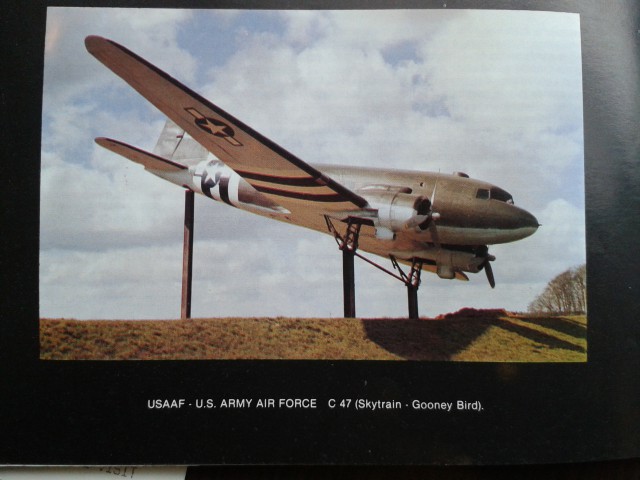
We are about to make you an offer in which you can acquire a ‘share’ of this War Bird. For an affordable price having your piece of the DC-3 History hanging proudly on your wall at home.
The Douglas DC-3/ C-47, a true Icon of Victory that was described by General D. Eisenhower as one of the crucial support machines that made the Allies win WWII. You can own a piece of that legend in the shape of a Limited Series Commemorative Placard, made from the authentic riveted skin panels of this stricken C-47, as shown in the pictures.
If interested in more details of the full story of the C-47 on the photos and more of the venerable Dakota, may I recommend you my book “The Dakota Hunter”.
320 pages of gripping stories and 250 photos made during my 20+ years of expeditions, in search of the legendary DC-3 on the last frontiers.
From Alaska to the High Andes, from Yukon to the Amazon and beyond, into Africa and Asia, I found the crashed, abandoned and flying DC-3’s in the remote corners of this world.
